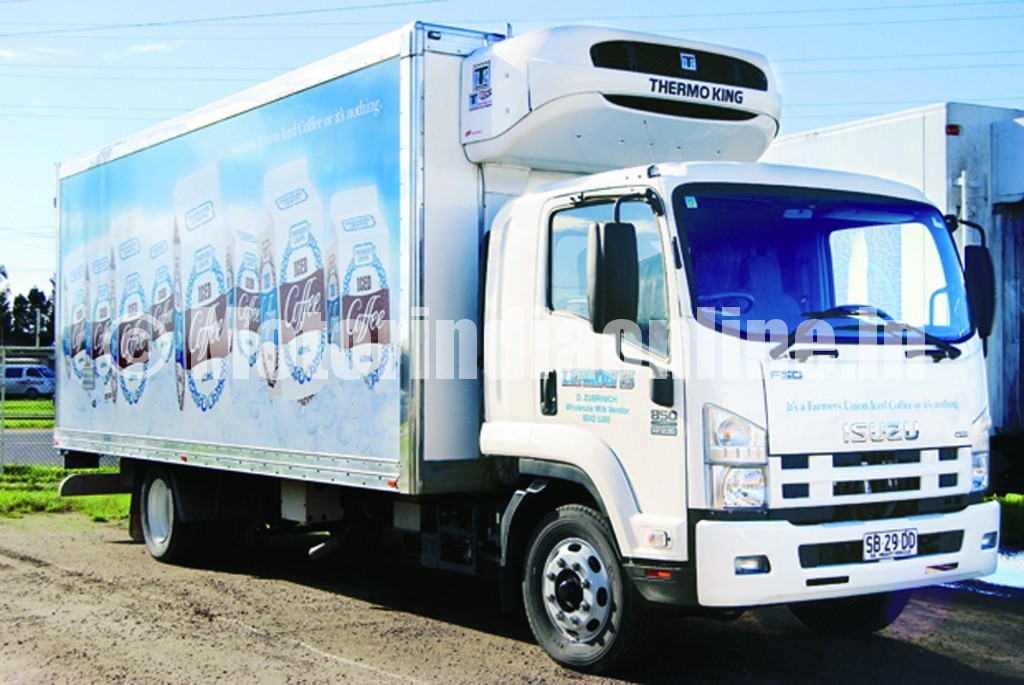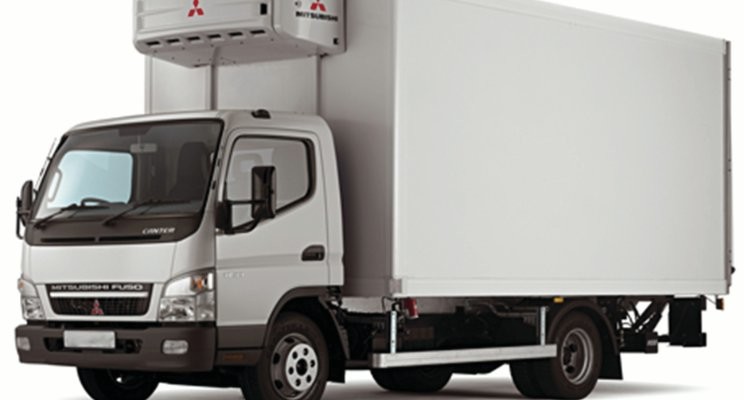Ingenious Cold Transport Companies for Efficient Temperature Level Control
Ingenious Cold Transport Companies for Efficient Temperature Level Control
Blog Article
An Extensive Summary of the Mechanisms Behind Refrigerated Truck Transportation and Its Duty in Food Safety
Cooled truck transport is important in keeping food security, using innovative temperature control mechanisms and insulation technologies to guard perishable products during transit. The combination of innovative tracking systems guarantees real-time oversight, permitting for immediate intervention in case of temperature deviations. These vital components not only preserve the integrity of food products yet also play an important duty in protecting against foodborne illnesses. Recognizing just how these mechanisms function together raises vital inquiries concerning their effectiveness and potential areas for renovation within the industry. What ramifications do these variables have for the future of food safety and security?
Relevance of Refrigerated Transport
Chilled transportation plays a vital duty in keeping the integrity and security of subject to spoiling goods throughout the supply chain (cold transport companies). This customized logistics system is necessary for protecting the high quality of foodstuff, consisting of fresh fruit and vegetables, milk items, meats, and fish and shellfish, which are susceptible to spoilage when exposed to temperature fluctuations. The ability to keep a controlled and consistent environment guarantees that these goods retain their dietary worth, taste, and safety and security for consumers
In addition, chilled transport minimizes the risks of foodborne diseases, which can develop from the growth of unsafe microorganisms in improperly stored things. By adhering to strict temperature level demands, businesses not only adhere to regulative standards however also foster consumer depend on and brand reliability. The economic ramifications are substantial; reduced putridity prices translate to reduced losses for merchants and distributors, adding to general earnings.
Furthermore, the increasing global need for top notch and fresh food additionally emphasizes the relevance of refrigerated transport. As supply chains come to be a lot more complex and prolong globally, the need for efficient temperature-controlled logistics remains to grow, underpinning the whole food distribution network and making certain that perishable items reach their destinations securely and efficiently.
Temperature Control Devices
Keeping optimum temperature control is crucial in the transportation of disposable items, and a selection of mechanisms are utilized to accomplish this goal. Cooled vehicles use sophisticated refrigeration systems, mostly utilizing vapor compression modern technology, which circulates refrigerant with evaporator and condenser coils to remove warmth from the freight area. This procedure ensures that the interior stays consistently awesome, thus preserving the high quality and security of the items being transported.
Additionally, trucks are equipped with temperature level monitoring systems that offer real-time data on the interior atmosphere. These systems usually consist of digital sensors and alarm systems to alert operators in case of temperature changes, making it possible for prompt rehabilitative activities. Some cooled vehicles likewise include programmable temperature level settings, permitting specific control customized to certain sorts of cargo, such as pharmaceuticals, veggies, or fruits.
Furthermore, using pre-cooling techniques before filling improves the efficiency of temperature control. By lowering the freight location's temperature before the intro of items, the danger of temperature spikes during transportation is reduced. These devices collectively add to a reputable cool chain, crucial for keeping the integrity and safety of disposable food items throughout the transport procedure.
Insulation Technologies
Insulation innovations play an essential function in enhancing the effectiveness of cooled truck transportation by decreasing thermal exchange in between the cargo location and the outside setting. Efficient insulation is essential for maintaining the called for temperature level for disposable items, consequently making sure food safety and high quality during transportation.
Typical insulation materials utilized in cooled trucks include polyurethane foam, polystyrene, and fiberglass, each supplying varying levels of thermal resistance. Polyurethane foam, understood for its remarkable shielding properties, is frequently used as inflexible panels that can be built to fit the vehicle's interior.

Advanced Monitoring Systems
To make certain the stability of disposable items during transport, progressed monitoring systems have actually become a critical technology in the refrigerated truck industry - transport refrigeration companies. These systems use a mix of sensing units, information loggers, and real-time tracking technologies to continuously keep track of temperature level, moisture, and total cargo problems throughout the trip. By providing immediate responses on ecological variables, these systems permit punctual rehabilitative actions, thus guarding product top quality
Modern keeping an eye on systems are outfitted with wireless connection, making it possible for smooth data transmission to logistical hubs and stakeholders. This connectivity helps with remote surveillance, which is important for preserving conformity with industry policies and requirements. Alerts can be created in real-time, notifying operators of any type of inconsistencies from pre-set thresholds, thus lessening the danger of perishing.
Furthermore, the integration of sophisticated analytics and maker understanding formulas enhances anticipating capabilities, permitting much better my sources planning and risk evaluation. Historical information accumulated from these systems can educate future transport strategies, optimizing routes and lowering possible threats. On the whole, the implementation of innovative surveillance systems represents a significant development in the cooled transport industry, strengthening the commitment to preserving the quality and safety and security of disposable products throughout their journey.
Influence on Food Safety Specifications
The integration of sophisticated surveillance systems in chilled truck transportation has considerably affected food safety criteria across the supply chain. These systems make it possible for real-time monitoring of temperature, humidity, and various other essential specifications important for maintaining the honesty of subject to spoiling products. By ensuring that products stay within defined temperature arrays during transportation, these modern technologies reduce the risk of microbial development and spoilage, which are crucial in food security.

The fostering of data analytics also permits aggressive decision-making, enabling business to recognize potential problems prior to they intensify right into food safety and security infractions. Consequently, the incorporation of sophisticated surveillance systems not just boosts functional efficiency but also cultivates better responsibility in the food supply chain. This development underscores the critical role of modern technology in boosting food safety and security requirements and making sure customer self-confidence in the products they receive.
Verdict
Finally, chilled vehicle transportation is vital for preserving food security via effective temperature level control, progressed insulation innovations, and continuous monitoring systems. These devices function synergistically to protect the quality of subject to spoiling goods and reduce the risk of foodborne ailments. Adherence to stringent food security criteria is attained through the application of these modern technologies, highlighting the important role of refrigerated transportation in the food supply chain and its effect on public health.
Cooled vehicle transportation is indispensable in maintaining food safety and security, utilizing advanced temperature level control systems and insulation technologies to guard perishable goods throughout transportation - transport refrigeration company. Proper maintenance of insulation integrity, consisting of routine checks for wear or damages, is likewise important to sustain the efficiency of refrigerated transportation systems and make certain conformity with food safety and security policies
The integration of innovative tracking systems in cooled truck transport has actually dramatically affected food safety and security standards throughout the supply chain.In verdict, cooled truck transportation is vital for maintaining food safety and security with efficient temperature control, progressed insulation innovations, and constant monitoring systems. Adherence to rigorous food security standards is attained with the implementation of these modern technologies, highlighting the important role of chilled transport in the food supply chain and its influence on public health and wellness.
Report this page